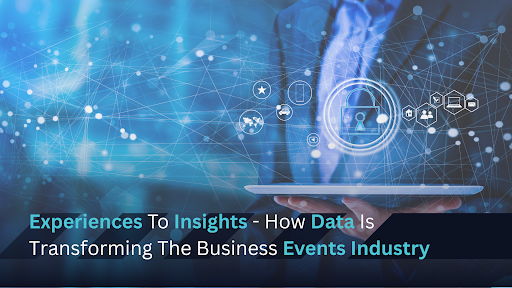Data has become an integral part of all the major industries and the business events industry is no exception. As people around the world depend more on personal devices and leave larger digital traces, it has become simpler to gather and use data to impact their event experiences. By utilising this information, event planners can gain valuable insights into attendee preferences, behaviours and needs, allowing them to craft more personalised and memorable events. This deep understanding of their audience creates a more meaningful connection between attendees and the event, resulting in a more fulfilling and enriching experience.
With more than 87% of consumer purchases influenced by events, event planners and managers are motivated to collect and analyse data to gain insights into their customers. However, consolidating data from various tools into a single platform is a significant challenge. Therefore, it is essential to have the capacity to analyse and apply the data to the context of the event. In this blog, we explore some of the ways data is reshaping the business events industry and how event professionals can use data to their advantage.
Increased Engagement
With the shift in the global consumer behaviour, consumers value experiences more than material wealth, and recent innovations have made it possible to track and gain insights from attendee experiences. By capturing nuanced data, event managers can personalise experiences and create a 3D profile of their attendees, including their engagement level and emotional responses as they go through the event. This enables event organisers to tailor their events to their attendees' preferences and create more engaging experiences.
Personalised Invites
With the availability of relevant data, event organisers can now create targeted and segmented campaigns that are highly relevant to customers. By leveraging data from online preferences, event planners can market their events on social media platforms like Twitter, Facebook, Instagram and LinkedIn. This allows the organisers to personalise their messaging and increase public engagement and awareness.
Delivering Experiential Marketing
Event planners and marketers often leverage data to tailor experiential design for events based on consumer conversations on social media. They can also identify influencers that resonate with their target market through data aggregation and analytics. One emerging trend in experiential marketing is that some brands are throwing their weight behind social causes that their target markets are supporting, giving event planners and marketers insight into experiences that forge deeper connections with their customers.
Crowdshaping
Data is also being used to control crowd flow and maximise attendee engagement. It allows the event organisers to use the data sources and latest technologies to adjust and customise their events in real time. Technologies like Bluetooth tags, RFID wristbands, and interactive apps are used to gauge and enhance the experience of event attendees. Data driven crowdshaping allows the event planners to ensure that attendees enjoy their time without exerting too much influence over their choices.
Improved Event Insights
Data analytics is essential for obtaining feedback and improving future events. Discovery surveys and post-event surveys on social media channels are more personalised than ever, providing valuable insights for future events. By having access to the right information, event planners can discover new pain points and make the event more successful. Data analytics can also help identify factors that might affect attendees' behaviour, reducing uncertainty and giving event planners more flexibility in their events.
Taking everything into account, data is transforming the events industry, providing valuable insights into attendee behaviour and preferences. By leveraging data, event planners and managers can create personalised experiences, control crowd flow and tailor experiential marketing. Data is also essential for improving future events and gaining insights into emerging trends and audience preferences. As more tools and use cases develop, data will continue to disrupt the events industry and push its innovation forward.


